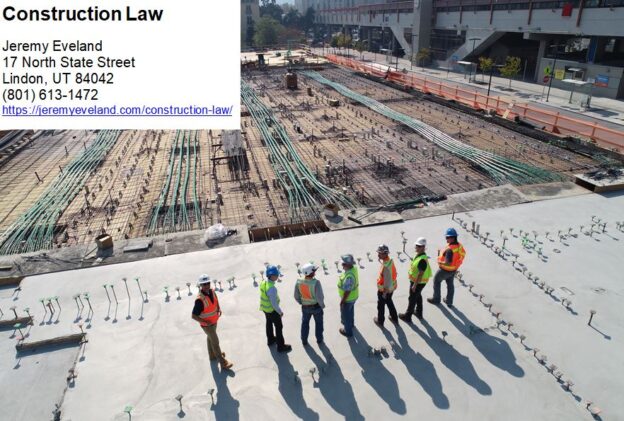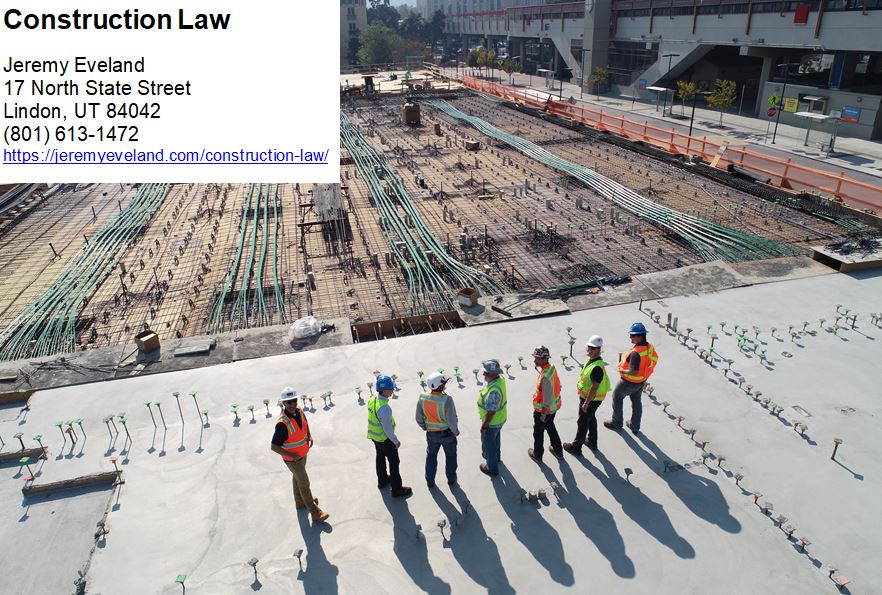In today’s complex business landscape, ensuring independent contractor compliance has become a top priority for businesses and business owners alike. With the rise of the gig economy and the increased reliance on independent contractors, it is essential to understand the legal implications and requirements surrounding this area. The consequences of misclassifying workers as independent contractors instead of employees can be significant, including potential fines, penalties, and even legal disputes. By familiarizing yourself with the key aspects of independent contractor compliance, you can safeguard your business and mitigate potential risks. In this article, we will explore the fundamental principles, common challenges, and best practices associated with independent contractor compliance, equipping you with the knowledge you need to navigate this area of law effectively.
Understanding Independent Contractor Compliance
Independent contractor compliance is a crucial aspect of business operations that involves ensuring that workers classified as independent contractors are correctly classified according to legal requirements. This compliance is essential as misclassification can lead to legal issues, penalties, and reputational damage for businesses. By understanding the legal requirements, benefits, and implications of independent contractor compliance, businesses can mitigate risks and maintain a productive relationship with independent contractors.
What is Independent Contractor Compliance?
Independent contractor compliance refers to the adherence to legal requirements when engaging and classifying workers as independent contractors. It involves accurately determining the independent contractor status, entering into written agreements, maintaining proper records, fulfilling tax obligations, and implementing appropriate compliance training. By complying with these regulations, businesses can navigate the complex landscape of independent contractor relationships while minimizing legal risks.
Legal Requirements for Independent Contractors
To determine whether a worker should be classified as an independent contractor, businesses must consider the guidelines provided by the Internal Revenue Service (IRS). The IRS focuses on various factors to assess if a worker is an employee or an independent contractor. These factors include the degree of control, financial arrangements, and the nature of the working relationship. It is important to note that these guidelines can vary slightly depending on the state and the specific industry.
Benefits of Independent Contractor Compliance
Complying with independent contractor regulations offers several benefits to businesses. One key advantage is cost savings. Independent contractors are generally responsible for their own taxes, benefits, and insurance, alleviating businesses of these financial burdens. Additionally, engaging independent contractors provides businesses with flexibility, as contractors can be hired for specific projects or specialized tasks.
Compliance also helps businesses build a positive reputation and maintain good relationships with independent contractors. By treating contractors fairly, complying with legal requirements, and providing clear guidelines, businesses can foster trust and loyalty. This can lead to enhanced productivity, improved performance, and potential referrals for new projects.
Determining Independent Contractor Status
Determining the correct classification of a worker as an employee or independent contractor is crucial to compliance. The IRS provides guidelines to assess various factors, including behavioral control, financial control, and the relationship between the business and the worker. These factors help businesses evaluate the degree of independence the worker has, the level of control exerted by the business, and the overall nature of the working relationship.

IRS Guidelines for Classification
The IRS provides three main categories to evaluate the worker’s status:
-
Behavioral Control: This factor examines whether the business has the right to control how the worker performs their tasks. If the business has the authority to direct and control the worker’s actions, they may be considered an employee.
-
Financial Control: This factor analyzes the business’s control over the financial aspects of the worker’s job, such as the ability to incur expenses and the method of payment. Independent contractors typically have more control over financial matters related to their work.
-
Relationship: This factor considers the presence of a written contract and the intention of the parties regarding the employment relationship. It also takes into account benefits, permanency of the relationship, and the nature of the work performed.
Factors to Consider When Determining Independent Contractor Status
Apart from the IRS guidelines, several other factors should be considered when determining the independent contractor status. These factors may vary depending on state laws and specific industry regulations. Some common considerations include the worker’s investment in tools and equipment, the opportunity for profit or loss, the provision of services to other companies, and the level of skill required for the job.
Consequences of Misclassifying Workers
Misclassifying workers as independent contractors when they should be classified as employees can lead to significant consequences for businesses. Employers may be subjected to audits and investigations by government agencies like the Department of Labor or the IRS. These investigations can result in substantial fines, penalties, and the obligation to pay back wages, benefits, and taxes owed to misclassified workers. Additionally, misclassification can lead to employee claims for unpaid benefits, entitlements, and legal action against the business.
Independent Contractor Agreement
Having a written agreement with independent contractors is crucial to establish clear guidelines, rights, and responsibilities for both parties. An independent contractor agreement helps define the scope of work, payment terms, intellectual property rights, confidentiality obligations, and dispute resolution processes. It can also reinforce the independent contractor status and mitigate the risk of misclassification claims.
Importance of Having a Written Agreement
A written agreement provides clarity and helps ensure that both parties have a mutual understanding of the engagement. It outlines the expectations and sets forth the terms and conditions of the working relationship. By clearly documenting the independent contractor’s role and responsibilities, businesses can minimize misunderstandings and potential disputes. It also helps protect the business’s interests by addressing issues such as liability, termination, and intellectual property ownership.
Key Clauses to Include in an Independent Contractor Agreement
When drafting an independent contractor agreement, several key clauses should be included to protect the business’s interests and comply with legal requirements. These clauses may include:
-
Scope of Work: Clearly define the detailed scope and specific tasks to be performed by the independent contractor.
-
Payment Terms: Specify the compensation structure, payment frequency, and any invoicing or expense reimbursement procedures.
-
Intellectual Property: Clarify ownership of intellectual property and ensure that any work produced by the independent contractor belongs to the business.
-
Confidentiality and Non-Disclosure: Establish obligations for maintaining the confidentiality of proprietary information and non-disclosure of sensitive business matters.
-
Indemnification: Determine the extent of liability and the responsibility for any damages or claims arising from the independent contractor’s work.
-
Termination: Outline the conditions under which either party can terminate the agreement, including notice periods and any related obligations.
Enforceability of Independent Contractor Agreements
To ensure the enforceability of an independent contractor agreement, it is important to consider the applicable laws and regulations governing such agreements. Seek legal counsel to review the agreement and ensure compliance with local, state, and federal laws. The agreement should be clear, unambiguous, and reflect the true intentions of both parties. If any disputes arise, a well-drafted agreement can serve as evidence of the relationship’s nature and the parties’ intentions.
Record Keeping and Documentation
Maintaining accurate records and documentation is a fundamental aspect of independent contractor compliance. Proper records not only assist in determining the appropriate classification but also facilitate tax reporting, audit responses, and potential dispute resolution. Effective record keeping demonstrates the legitimacy of the independent contractor relationship and ensures compliance with legal obligations.
Importance of Maintaining Accurate Records
Accurate records are essential for demonstrating the business’s compliance with independent contractor regulations. By maintaining proper records, businesses can provide evidence of the independent contractor’s status and the nature of their engagement. These records help substantiate the independent contractor relationship, address any misclassification claims, and demonstrate compliance with tax, wage, and hour laws.
Types of Records to Keep for Independent Contractors
Businesses should maintain a comprehensive set of records for each independent contractor, including:
-
Independent Contractor Agreement: A copy of the written agreement between the business and the independent contractor.
-
Identification Documents: Copies of the independent contractor’s identification, such as a government-issued ID or TIN (Taxpayer Identification Number).
-
Invoices: Records of all invoices and payments made to the independent contractor, including any reimbursements for expenses incurred.
-
Project and Task Details: Detailed documentation of the specific projects or tasks assigned to the independent contractor, along with any associated timelines and milestones.
-
Correspondence and Communication: Copies of email exchanges, written communications, or any other documentation that reflects the nature of the relationship, instructions, or mutual agreements.
Record Retention Guidelines
It is crucial to adhere to record retention guidelines to ensure compliance with legal requirements. The specific retention periods may vary depending on federal, state, and local regulations. Generally, businesses should retain records related to independent contractors for at least three to seven years. Consult legal counsel or industry-specific guidelines to determine the appropriate retention periods for different types of records.
Tax Obligations for Independent Contractors
Independent contractors have distinct tax obligations compared to employees. Understanding and fulfilling these obligations is essential to maintain compliance and avoid penalties or legal consequences. Independent contractors are responsible for paying their own income taxes and self-employment taxes, as they are considered self-employed individuals.
Income Tax Responsibilities
Independent contractors are responsible for reporting and paying their income taxes on a quarterly basis. They must file Form 1040-ES and estimate their tax liability for the year. In addition to income taxes, independent contractors may also need to pay estimated taxes for any applicable state or local income taxes.
Self-Employment Tax Obligations
As self-employed individuals, independent contractors are also responsible for paying self-employment taxes. These taxes cover Medicare and Social Security contributions, which are usually shared between employers and employees in traditional employment relationships. Independent contractors must pay both the employer and employee portions of these taxes, known as the Self-Employment Contributions Act (SECA) tax.
Payment and Reporting Deadlines
Independent contractors should be aware of important payment and reporting deadlines to ensure compliance with tax obligations. Quarterly estimated tax payments are due on April 15, June 15, September 15, and January 15 of the following year. Additionally, independent contractors must file an annual income tax return, typically due on April 15.

Worker Classification Audits
Government agencies, such as the Department of Labor and the IRS, conduct audits focused on worker classification to ensure compliance with the law. These audits assess whether employers are properly classifying workers as employees or independent contractors based on various factors. Understanding the types of audits, responding appropriately, and minimizing audit risks are essential for businesses.
Types of Audits Conducted by Government Agencies
Government agencies may conduct two main types of audits related to worker classification:
-
Payroll Audit: This audit focuses on the classification of workers and examines payroll records, tax filings, and employment contracts to determine if workers have been accurately classified.
-
Employment Tax Audit: This audit evaluates employer compliance with employment tax obligations, including proper classification and payment of payroll taxes. It may involve a thorough review of payroll records, tax returns, and other relevant documentation.
Responding to an Audit
When faced with an audit, businesses should respond promptly and cooperatively. It is advisable to seek legal counsel experienced in employment and tax law to guide the response process. Responding to an audit typically involves gathering and providing requested records, providing explanations regarding classification decisions, and addressing any identified non-compliance promptly. Cooperating with auditors and demonstrating a good-faith effort to comply can often lead to more favorable outcomes.
Minimizing Audit Risks
To minimize audit risks, businesses should regularly review their independent contractor relationships and ensure compliance with legal requirements. Conducting periodic internal audits and consulting legal counsel can help identify potential issues and rectify them proactively. Additionally, maintaining accurate and complete records, following IRS guidelines for classification, and consistently applying those guidelines across the organization can mitigate the risk of audits and potential penalties.
Worker Misclassification Litigation
Worker misclassification can lead to legal consequences for businesses, ranging from claims for unpaid benefits to lawsuits for significant damages. Understanding the potential legal consequences, defending against misclassification claims, and addressing any penalties or damages are integral to independent contractor compliance.

Potential Legal Consequences of Misclassification
Misclassified workers may file claims to seek compensation for unpaid benefits, wages, overtime, or other entitlements typically offered to employees. Businesses may also face lawsuits from independent contractors who believe they have been wrongly classified. The legal consequences can result in substantial financial damages, reputation damage, legal fees, and potentially injunctive relief that requires reclassification of workers as employees.
Defending Against Misclassification Claims
To defend against misclassification claims, businesses should gather and maintain thorough records, including the independent contractor agreement, correspondence, timesheets, and any other documentation that supports the independent contractor relationship. Engaging legal counsel experienced in employment law can provide guidance on potential defenses, such as demonstrating the independent contractor’s control over their work, autonomy, and entrepreneurial nature of the engagement.
Damages and Penalties
In cases of worker misclassification, businesses may be liable for various damages and penalties. Misclassified workers can seek back wages, unpaid benefits, unpaid overtime, and other similar entitlements that are typically provided to employees. Additionally, businesses may face penalties imposed by government agencies, such as the IRS, the Department of Labor, or state labor agencies. These penalties can be significant, potentially including fines, interest, and an obligation to pay payroll taxes owed.
Independent Contractor Compliance Training
Implementing independent contractor compliance training is essential to educate employees, managers, and stakeholders about independent contractor regulations and the importance of compliance. Training can help businesses mitigate risks, maintain compliance, and foster a culture of accountability and understanding regarding the proper classification and engagement of independent contractors.
Importance of Employee Training
Training employees on independent contractor compliance ensures that all parties involved in the engagement understand the legal requirements, risks, and implications of non-compliance. Employees who are aware of these regulations can make informed decisions, properly classify workers, and ensure compliance with reporting obligations. Training also helps employees recognize situations that may require legal counsel or additional guidance.
Topics to Cover in Compliance Training
Compliance training should cover various topics related to independent contractor regulations, including:
-
Legal Requirements: Provide an overview of relevant federal, state, and local laws regarding worker classification and engagement.
-
IRS Guidelines: Explain the IRS guidelines for determining independent contractor status and the factors to consider during the classification process.
-
Record Keeping: Educate employees on the importance of maintaining accurate records and the specific types of records to be kept for independent contractors.
-
Tax Obligations: Discuss the tax responsibilities of independent contractors, including estimated tax payments and self-employment tax obligations.
-
Contractual Agreements: Emphasize the significance of having written independent contractor agreements and the key clauses that should be included.
Best Practices for Conducting Training
To ensure effective independent contractor compliance training, businesses should consider implementing the following best practices:
-
Tailored Content: Customize the training material to the specific industry, the organization’s policies, and the roles of the employees involved in the engagement of independent contractors.
-
Clear Communication: Use clear language and examples that employees can easily understand, especially if they are not familiar with legal terminology or concepts.
-
Interactive Methods: Incorporate interactive elements, such as case studies, quizzes, and real-life scenarios, to engage employees and promote active learning.
-
Regular Updates: Keep the training material up to date with any changes in laws, regulations, or industry practices related to independent contractor compliance.
Benefits of Seeking Legal Counsel
Seeking legal counsel specialized in independent contractor compliance provides businesses with valuable guidance, expert advice, and a comprehensive understanding of the legal considerations involved. Legal counsel can help businesses structure independent contractor relationships appropriately, minimize risks, and ensure compliance with applicable laws and regulations.
Role of Legal Counsel in Independent Contractor Compliance
Legal counsel plays a crucial role in helping businesses navigate the complexities of independent contractor compliance. They can review and draft independent contractor agreements, assess worker classification, provide guidance on best practices, and assist in responding to audits or disputes. Legal counsel can also stay abreast of updates in laws and regulations, ensuring businesses remain compliant in a rapidly evolving legal landscape.
Legal Advice for Structuring Independent Contractor Relationships
Legal counsel can provide advice on how to structure independent contractor relationships to comply with applicable laws and regulations. They can assist in defining the scope of work, drafting clear and enforceable agreements, and developing guidelines for the engagement of independent contractors. They can also provide guidance on record keeping, tax obligations, and risk mitigation strategies.
Legal Defense in Worker Misclassification Cases
In the event of misclassification claims or legal disputes, legal counsel familiar with employment law can provide a robust defense for businesses. They can assess the merits of claims, gather evidence, and develop legal strategies to protect the business’s interests. Legal counsel can also negotiate settlements, represent businesses in mediation or court proceedings, and advocate for the business’s position throughout the litigation process.
FAQs about Independent Contractor Compliance
What is the difference between an employee and an independent contractor?
The main difference between an employee and an independent contractor lies in the level of control and independence. Employees typically work under the control and direction of the employer, while independent contractors maintain more autonomy and control over how they perform their work.
What happens if I misclassify workers as independent contractors?
Misclassifying workers as independent contractors can lead to legal consequences, including potential audits, investigations, and claims for unpaid wages or benefits. Businesses may be subject to penalties, fines, and the obligation to pay back wages owed to misclassified workers.
Can independent contractors also be employees of a company?
No, individuals cannot simultaneously be classified as independent contractors and employees of the same company. The determination of whether an individual is an employee or an independent contractor should be based on the nature of the working relationship and the applicable legal guidelines.
Do independent contractors have rights and benefits?
Independent contractors typically do not have the same rights and benefits as employees. They are responsible for their own taxes, benefits, and insurance. However, they may have certain contractual rights as defined in their independent contractor agreements.
Do I need a lawyer to comply with independent contractor regulations?
While legal counsel is not required to comply with independent contractor regulations, it is highly recommended. Engaging legal counsel can provide businesses with expert guidance, ensure compliance with applicable laws, and help navigate potential disputes or audits related to independent contractor compliance.











